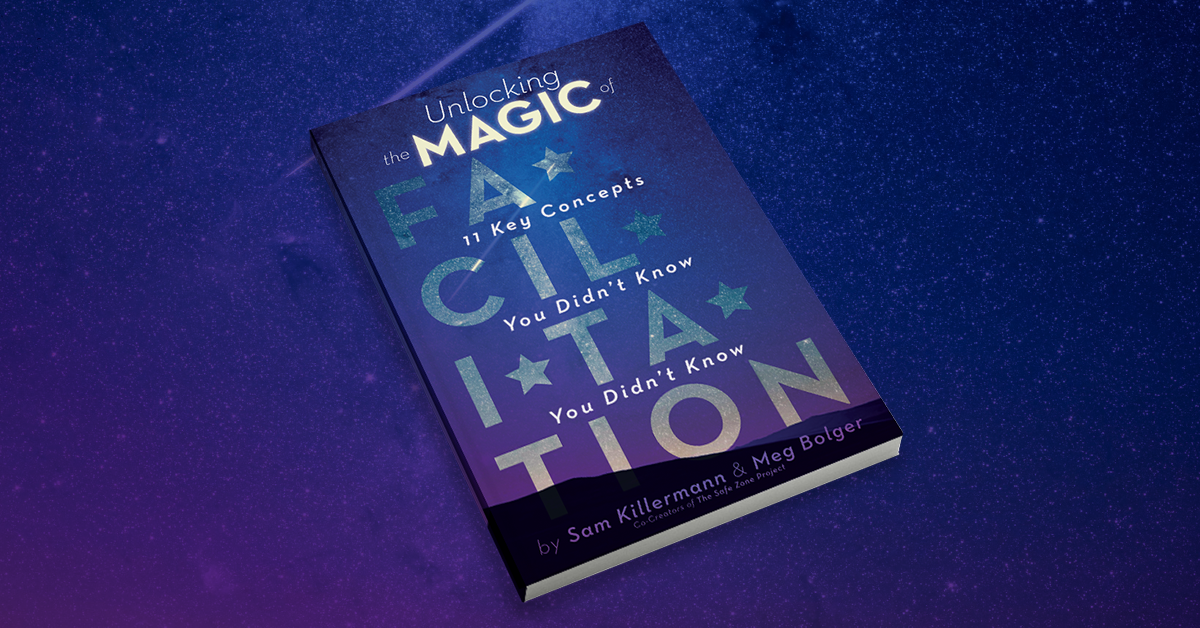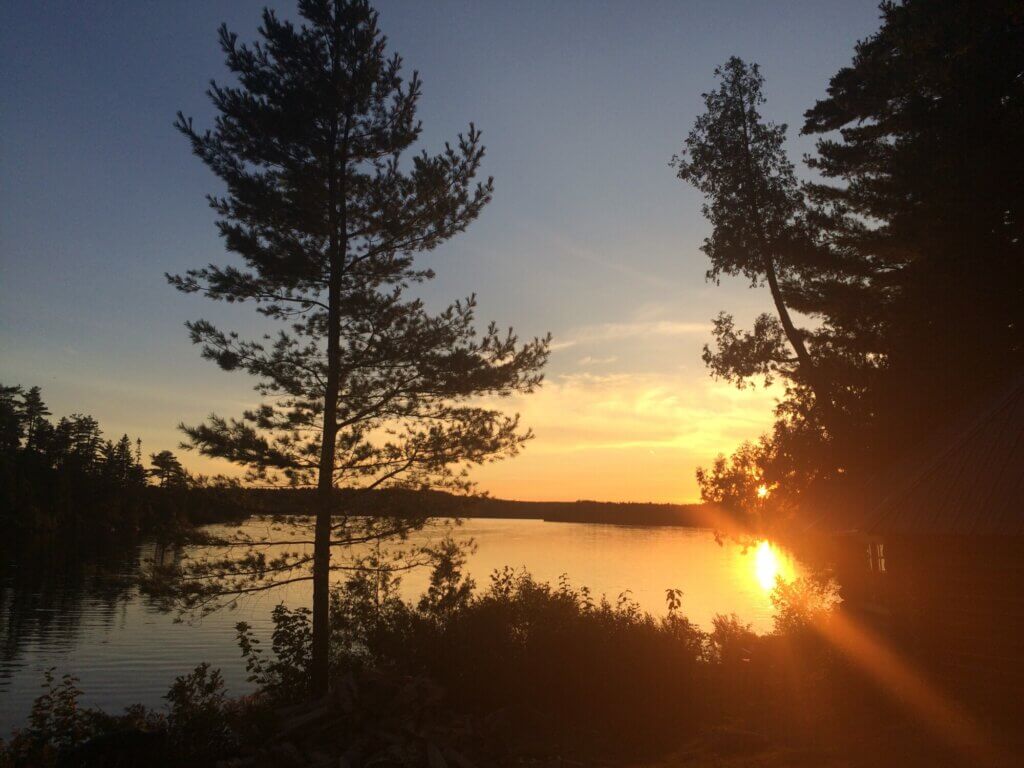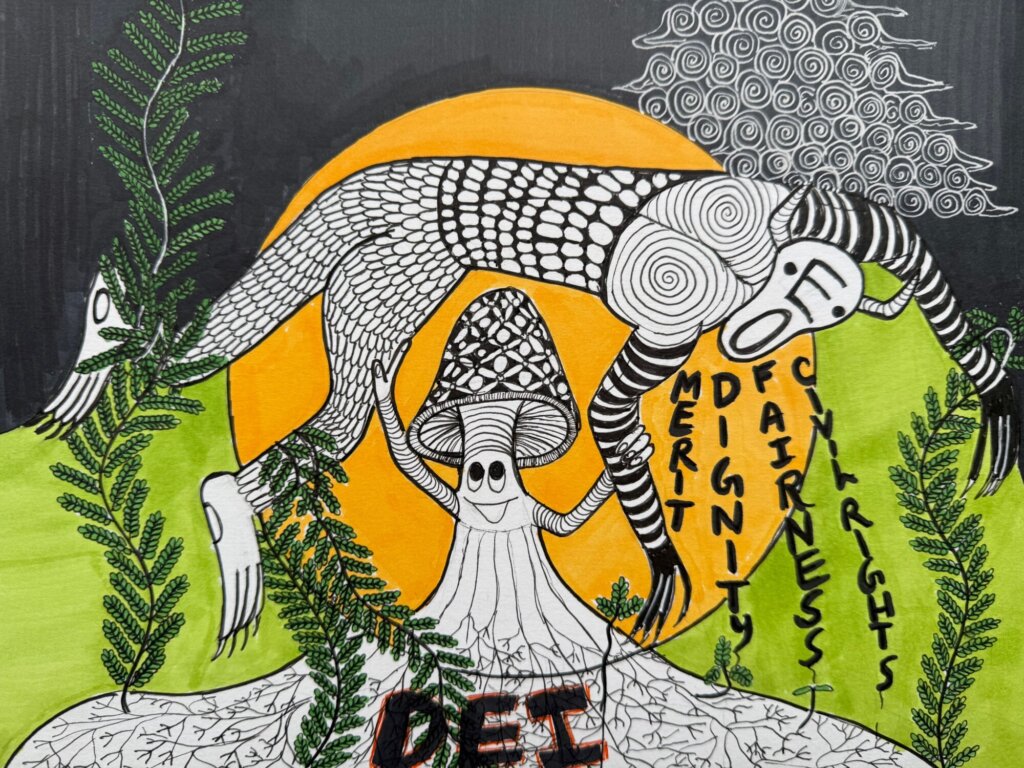Aparna
Published on
03 - 03 - 2016
Aparna
Published on
03 - 03 - 2016

I teach at Montana State University’s Department of Education, which educates the next generation of teachers. But what I’ve found is that teacher education programs don’t really teach teachers how to facilitate–they teach them how to teach.
Teaching and facilitation are two very different things, and in our work, facilitation is much more crucial for achieving truly transformative learning, building bridges across difference, and creating coalitions for change. For years, I’ve been figuring out how to facilitate the hard way. And it’s those moments of failure I remember most clearly; they can leave an unresolved pit in your stomach for days, months, or even years. Of course with time, we all get better, but I always wished that there was a more comprehensive resource to learn from other than my own mistakes.
Enter Meg Bolger and Sam Killermann; they just published a a book telling me everything I’ve had to learn through trial and error, and more. Their book, Unlocking the Magic of Facilitation: 11 Key Concepts You Didn’t Know You Didn’t Know, should be required reading for any facilitator.
Out of the gate, Meg and Sam distinguish lecturing from teaching from facilitating. Turns out they’re all different, and as you move along that continuum you are putting more agency and ownership for learning in the hands of your participants. Other hot tips include W.H.A.L.E. (Wait, Hesitate, Ask, Listen, then Explain) so that you can listen better, give people time to think, and talk less; “YAR!” (the “Yes, and” rule), which validate peoples’ realities; and navigate triggering events so you aren’t stuck in the feedback loop of emotions that cause people to shut down or storm off (which can happen when you’re talking about social justice).
My biggest “aha” moment is that my inclination is to educate through information, not facilitate through dialogue. Let’s say that a participant says, “you know, Aparna, I am not sure what the big deal is. Nature doesn’t care about your skin color, and neither do I. Why don’t we just focus on the fact that we’re all humans and treat each other equally?”
Without my facilitator hat on, my hackles go up immediately, and I would confront and educate, perhaps with something along the lines of: “You know, what you’re purporting to do is to be colorblind, which is not really possible, nor equitable. People’s identities may be important to them and to pretend that you don’t see their identities can be denigrating. Actually, did you know colorblindness is a microaggression?” And then maybe I’d play a video to show that colorblindness is a microaggression. And then maybe I’d show another image to illustrate that equity and equality are two different things. And the participant would probably just stare at me. In a quick minute, I’ve shut down a conversation that needs to happen.
Aparna the facilitator would do something different. Immediately, I would say, “Yes, you’re right that we are all humans, and as humans we all walk through life at the constellation of so many identities. Let’s talk about that. What are some salient identities for you?” Then maybe the participant would say, “I am a mother. I am an avid hunter. And I love butterflies.” And maybe then I would say, “Thank you for sharing that. How would you feel if I said, ‘I don’t want to know anything about you being a mother or hunter. In fact, I’m just going to pretend you’re just like me so we can talk about how we’re the same.’ How would that feel for you?” Or maybe I’d say: “This is a great time for all of us to examine our identities. Let’s do an activity!” Or maybe I would say, “I am guessing you’re not alone in feeling this way. Does anyone else feel this way?”
In reality, what I would do would depend on a lot of things. But one thing is clear. With facilitation, the world of possibilities opens up, allowing participants to engage and challenge each other, and ultimately change mindsets. And in the world of social justice education, that’s our endgame. Culture change requires mindset change. Mindset change requires facilitation.
Want to know more? Meg and Sam’s book is eminently readable (I did on an exercise bike in two sessions!). Buy it here, and make sure to give them feedback here.
Dear Avarna community, We’re only four months into four years of this presidential administration, and the attacks on everything our…
Read full post about Staying the Course: On EOs, Education, ERGs, and SailingAvarna Community, It is with nearly all the emotions you might find in an emotions wheel that I am announcing…
Read full post about Farewell, AvarnaThe current administration’s anti-DEI Executive Orders have sparked varied responses in the nonprofit and private sectors—some organizations are defending DEI…
Read full post about DEI Jujitsu: Flipping the Backlash to Reframe Our Work

